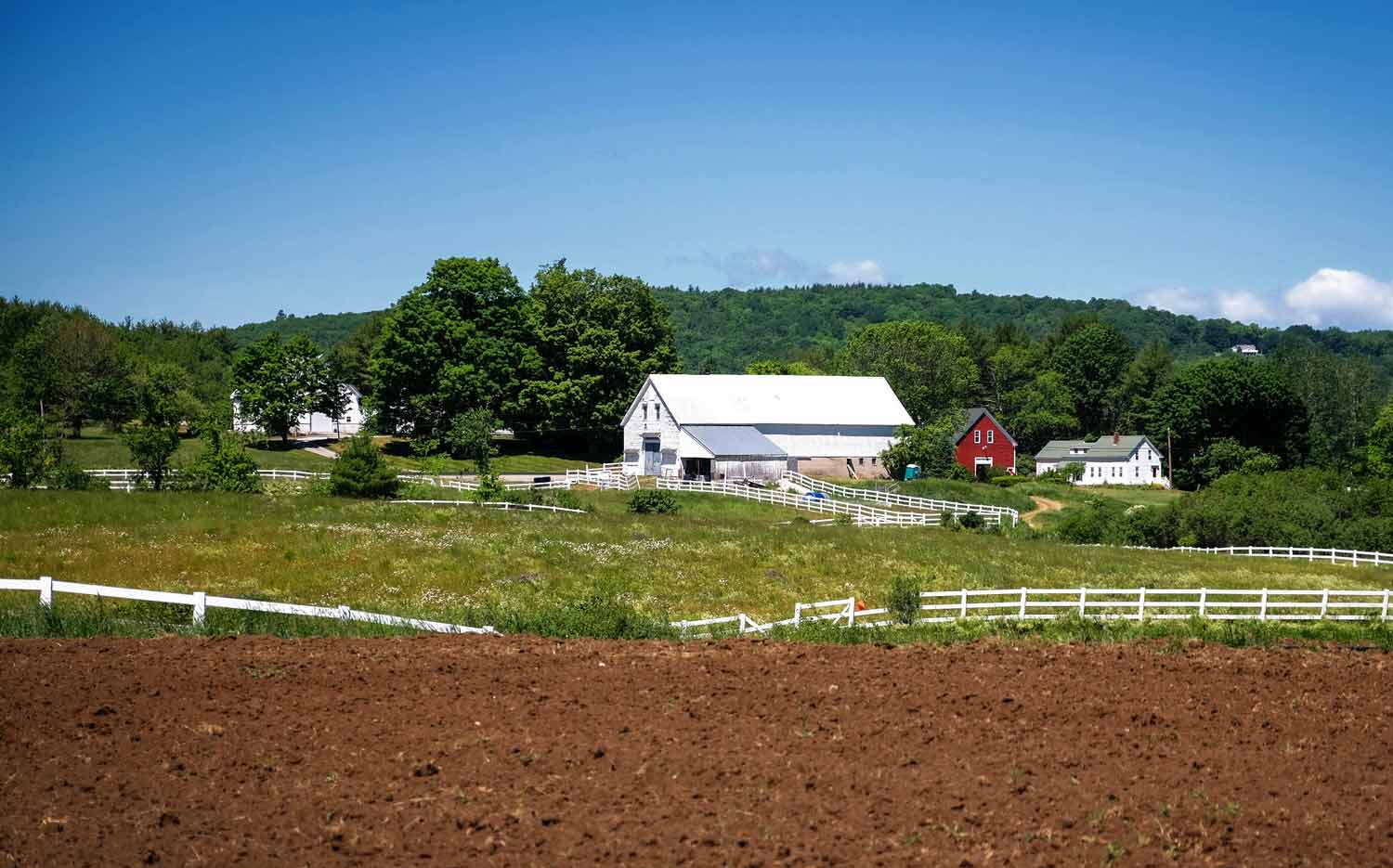
Falmouth farm’s solar upgrade supports climate resilience, immigrants' food production
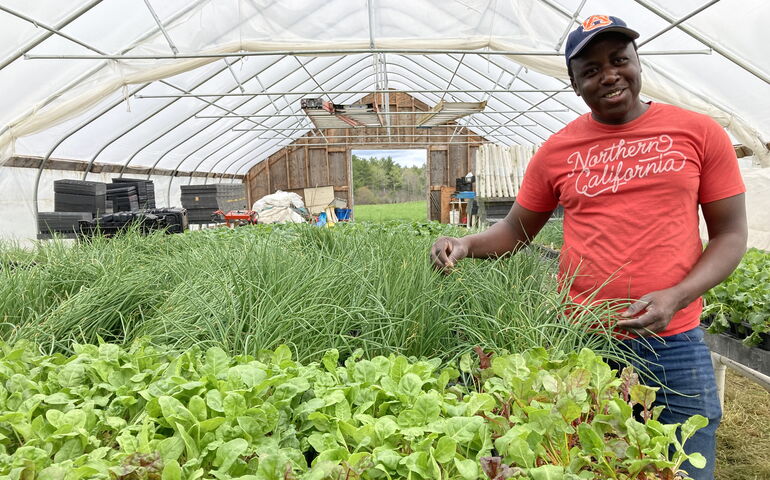 Photo / Courtesy, Cultivating Community
Badi Camara, a farm manager and new Mainer from the Gambia, is shown in the greenhouse.
Photo / Courtesy, Cultivating Community
Badi Camara, a farm manager and new Mainer from the Gambia, is shown in the greenhouse.
In 2015, the Falmouth Land Trust acquired a 62-acre working community farm called Hurricane Valley Farm.
Three years later, a Portland nonprofit called Cultivating Community began leasing the farm to provide land access for refugee and asylum-seeking families to grow culturally important crops — such as African eggplant, okra, roselle, squash leaf and flint corn. The farm also provides shared access to seedlings, greenhouses, irrigation, tools, training, and support.
More recently, farm operations have gotten a boost from ReVision Energy, a renewable energy contracting company headquartered in South Portland, volunteered time, labor and $5,000 to install a 20-panel ground-mounted solar array. Fitted with a battery backup system, the array is helping the farm become more climate-resilient — in turn supporting the more than 50 families farming there.

Now the farm is in its first season with the system in place.
“It’s a vast improvement, increasing the farm’s efficiency and capacity,” Silvan Shawe, executive director of Cultivating Community, told Mainebiz.
The farm
Hurricane Valley Farm got its name in 1767 after a hurricane leveled most of the trees in that part of West Falmouth and made it an ideal spot for farmers to settle, according to the trust’s website.
Early records show the land housed a dairy farm. From 1985 to 2015, the farm was used for boarding and training Morgan horses.
The habitat includes a pond, two vernal pools, a small wooded area, large white pines, standing dead elms, open fields and rotating crop fields. The majority of the property is former agricultural fields.
The Falmouth Land Trust acquired the farm in 2015 and provides farmer training, commercial farming opportunities, trail walking, birding, biking, snowshoeing and cross-country skiing.
The trust was founded as a nonprofit conservation organization in 1981. All together, it cares for over 2,700 acres of land, maintains miles of trails.
The farmers
Cultivating Community is a nonprofit food justice organization founded in 2001. Its mission is to grow sustainable, just communities in Greater Portland by providing education, resources and opportunities to cultivate and access fresh food.
In 2009, Cultivating Community adopted a farmer-training program called the New American Sustainable Project, which was launched in 2002 by Coastal Enterprises Inc.
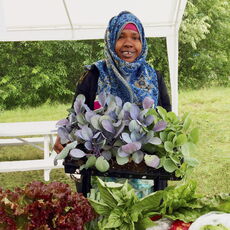
Since then, the New American Sustainable Project has evolved into two community farms: Hurricane Valley Farm, and in Lisbon, the Packard-Littlefield Farm. There, Cultivating Community and immigrant growers lease 10 acres, growing vegetables for food-insecure families in Cumberland and Androscoggin counties. Owned by the Daley Family, the 500-acre Lisbon property is protected by the Androscoggin Land Trust and the Maine Farms for the Future Program.
The New American Sustainable Agriculture project provides access to affordable growing space, shared infrastructure, training, and market access and support and helps adapt the skills of farmers from predominantly African countries to Maine's climate and food system.
Immigrant and refugee farmers working with Cultivating Community have community gardens for households and their neighbors; sell produce at farm stands and wholesale markets; and run a program providing culturally relevant food to new immigrant families in southern Maine at no cost.
The solar buzz
The new solar array generates 12,276 kilowatt-hours of electricity, which offsets 100% of the farm’s utility bills.
The energy helps power ventilation, lighting, water pumps and refrigeration used by both the Hurricane Valley Farm and the Packard-Littleton Farm.
Installation of the array was driven by climate change and unpredictable weather patterns, including extreme heat and winter storms, that affect crop development and yields and shorten crop cycles, according to the release.
The project cost was $70,000 for the array and a heat pump, heat pump hot water system and battery backup, said Mila Plavsic, the trust’s executive director.
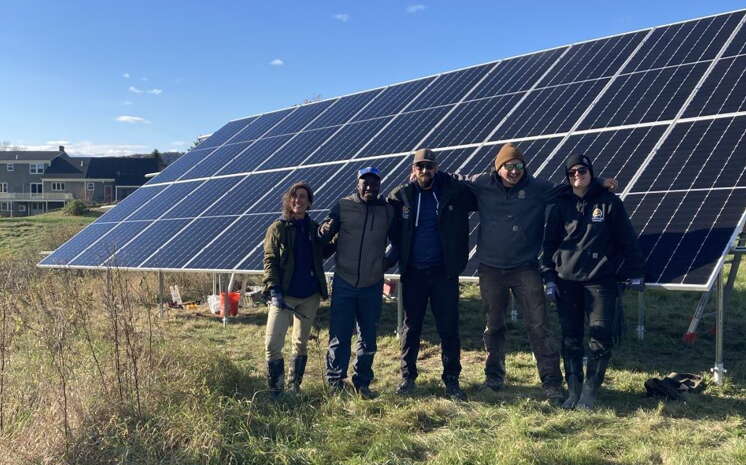
In addition to ReVision’s financial donation and volunteered labor, the project was made possible because of a $50,000 grant from the state of Maine to the town of Falmouth, plus reimbursements available through the Inflation Reduction Act. Altogether, the grants and funds covered 100% of the cost.
Reliable power is key to cultivation. Most African crops thrive in Maine’s climate — with a bit of greenhouse help, said Shawe.
“Having the high tunnels and greenhouses are really essential” to supporting the growth of the 42,000 seedlings that go through the farm every year, she said.
The programs also support business incubation, as many growers scale up their individual cultivation initiatives.
"The new solar array and backup battery system has not only made our farm more resilient but is modeling how solar and regenerative agriculture go hand-in-hand on small farms in Maine,” said Shawe.
Barn fundraising
To further support the New American Sustainable Project and other public uses of the farm, the trust is now raising money to restore an old barn there to allow for expanded programming.
Falmouth Land Trust and Cultivating Community have scheduled a Barn Fest fundraising event for Oct. 6 from 3 p.m. to 7 p.m.
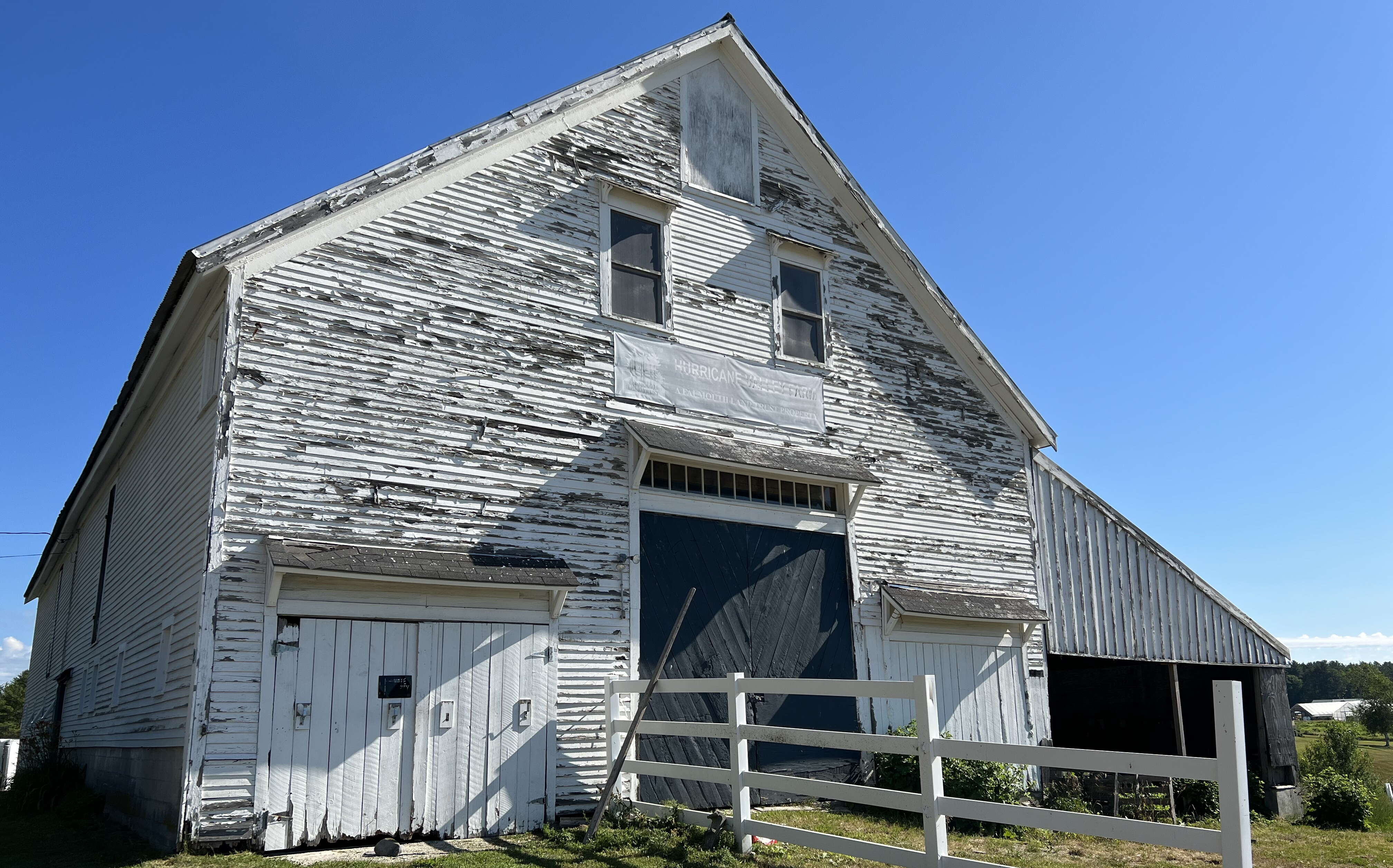
The celebration at Hurricane Valley Farm — 459 Gray Road, Falmouth, rain or shine — will feature food trucks, live music, kids' activities, a bonfire and more family-friendly fun. Attendance is free.
Event sponsors include Martin's Point Healthcare, Luke's Lobster, Vacationland Distributors and ReVision Energy.
The 100-year-old, multipurpose barn is considered integral to the work of the farm. While the barn is structurally sound, the roof, siding, timber frame and foundation are all in need of urgent repair or replacement. The trust said it needs to raise $350,000 for the project.
For more information, click here.










0 Comments